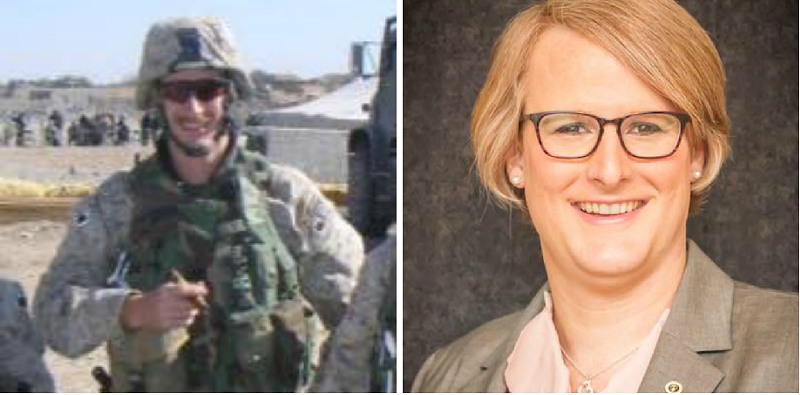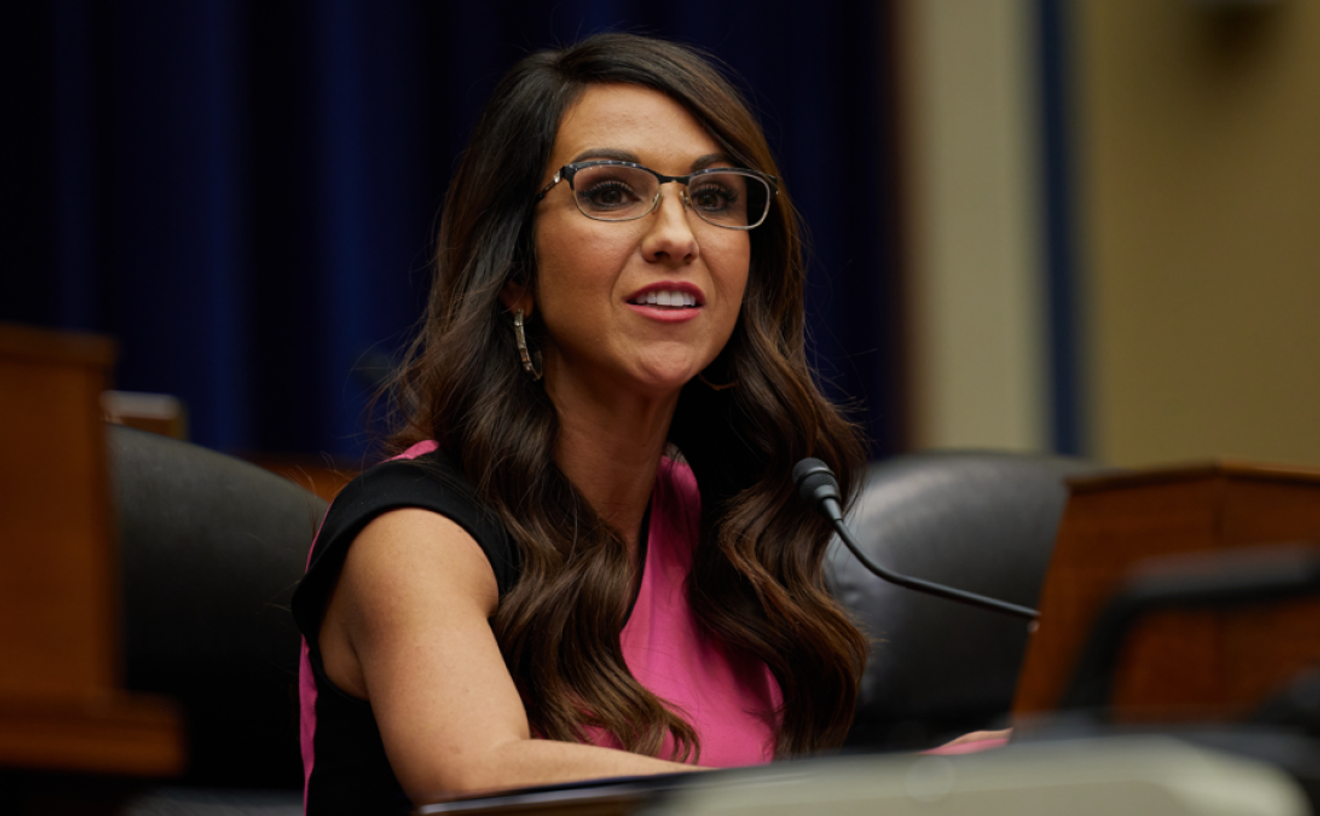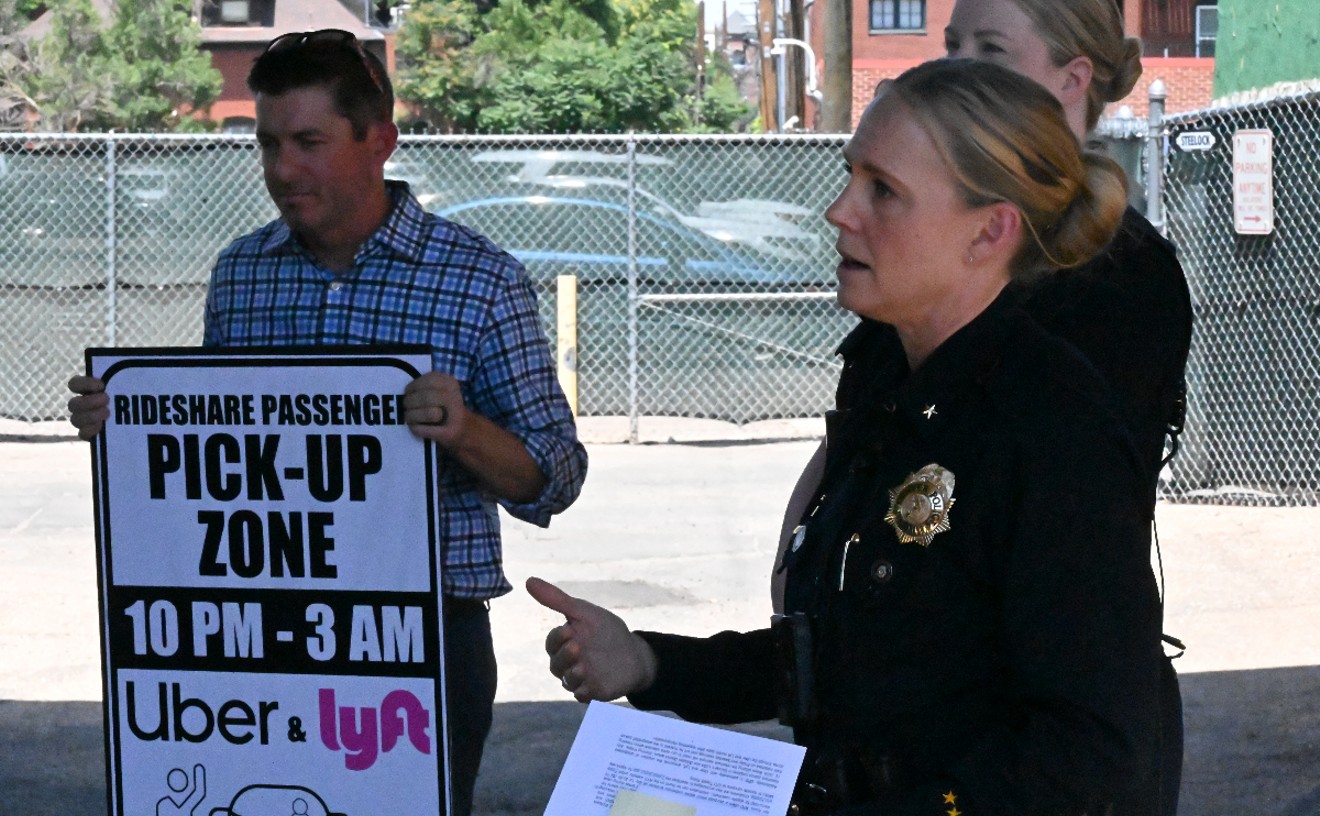She was ten years into her service tenure and stationed in Iraq when her section of scout platoons was ambushed in a complex assault just outside of Fallujah. "I had grooves in the barrel of my .50 caliber machine gun from rounds bouncing off it," she says. But the day had a happy ending, or as happy an ending as you can expect on the battlefield.
"Myself and the rest of my section — great Marines to a person — repelled that assault and were able to continue the mission," Shinn continues. "That was probably my most challenging day that I'd be willing to talk about."
Wednesday, July 26, 2017, is another day that Shinn, who lives in Castle Rock, will remember forever, and one that she says presents as much danger to her fellow Marines as that October day in Iraq. In a series of morning tweets, President Donald Trump announced that the United States would no longer allow transgender individuals like Shinn to serve in the military, reversing an Obama-era policy.
After consultation with my Generals and military experts, please be advised that the United States Government will not accept or allow..........Transgender individuals to serve in any capacity in the U.S. Military. Our military must be focused on decisive and overwhelming........victory and cannot be burdened with the tremendous medical costs and disruption that transgender in the military would entail. Thank you.Shinn knew that who she was on the inside didn't match who she was on the outside when she was as young as four. "I remember looking in the mirror — my body didn't match what my brain was telling me," she recalls.
Growing up in the South — Mississippi, South Carolina and Texas — and in a very religious family, she did everything she could to prove that she was a man, she says, "before relenting to my true identity" just last year, at age forty. And to her, nothing was more manly than a Marine. "But the Marines was always very attractive to me because of our code and the way Marines take care of each other," she says. She enlisted in 1994, when she was eighteen.
She spent the first ten years of her career as an infantryman. "My job specifically was blowing up tanks," she says. She started getting more responsibilities, serving as an infantry platoon sergeant in Fallujah during Operation Phantom Fury, a bloody, storied battle in December 2004, led by Marines. When she returned to the U.S., she was commissioned as an attorney and retired as a judge advocate (a military lawyer). She's now a criminal defense attorney and represents service members who have been court-martialed and civilians in state and federal trials.
Shinn identifies as both trans and queer. Her first brush with the military's stance on LGBT servicemen and -women was in the ’90s, during the Don't Ask, Don't Tell era. "It was a struggle," she says. "It would have been so much easier to have complete focus on the mission if I didn't have to hide part of me, which has zero impact on readiness in the battlefield.""It would have been so much easier to have complete focus on the mission if I didn't have to hide part of me."
tweet this
Though Shinn isn't an active duty member anymore, Trump's policy feels all too personal.
"By refusing to allow open trans service, the people who have transitioned already, I can only imagine their fear and their disappointment and the range of emotions going through their head," she says. "It's sad to say, but from either suicide or from hate crimes, people may lose their lives because of what President Trump tweeted today."
A 2016 study from the RAND Corporation, a nonprofit research institution, that was commissioned by Obama's Defense Secretary, showed transgender people would comprise a small fraction of the military if allowed to serve openly, and that they would have a minimal impact "on readiness and health care costs." From the study:
The study estimates that between 30 and 140 new hormone treatments could be initiated a year and 25 to 130 gender transition-related surgeries could be utilized a year among active component service members. Additional health care costs could range between $2.4 million and $8.4 million, representing an approximate 0.13-percent increase.Thinking back on that day in October, Shinn says her identity or the identities of the men and women in her platoon wouldn't have mattered. "The vast majority of Marines don't care if someone is trans or gay or black or Jewish," she says. "The Marines [in my] scout platoon didn't care if we were LGBT. All they cared about was could you put rounds on target and repel the enemy's assault."
In terms of readiness, RAND estimates that 10 to 130 active component members each year could have reduced deployability as a result of gender transition-related treatments. This amount is negligible relative to the 102,500 nondeployable soldiers in the Army alone in 2015, 50,000 of them in the active component.












